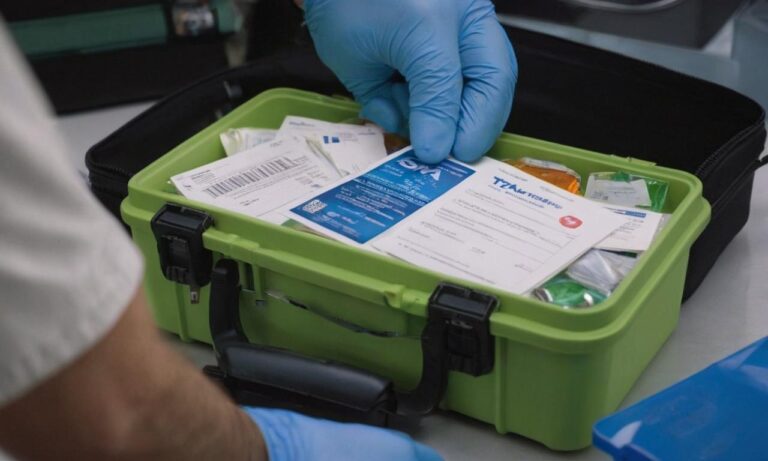Embarking on a journey with medical marijuana involves navigating a complex landscape of regulations and considerations. As the societal acceptance of medical cannabis grows, individuals with valid prescriptions may wonder about the feasibility of carrying their medication on a plane.
It’s crucial to note that while some regions have legalized medical marijuana, others maintain strict regulations or consider it illegal. The intersection of air travel and medical marijuana raises questions about the compatibility of these two spheres.
Understanding the Legal Landscape
The legality of traveling with medical marijuana varies significantly depending on your departure and destination locations. In some jurisdictions, carrying medicinal cannabis on a plane is explicitly allowed, while in others, it might lead to legal consequences.
Before embarking on your journey, it’s essential to research the laws of both your departure and arrival destinations. Some states and countries may recognize out-of-state or international medical marijuana prescriptions, while others may not.
Transportation Security Administration (TSA) Guidelines
When it comes to air travel within the United States, the Transportation Security Administration (TSA) has guidelines that passengers should be aware of. The TSA’s primary focus is on security threats, and their agents are not actively searching for drugs. However, if a TSA agent discovers marijuana during routine screening, they are required to report it to law enforcement.
It’s crucial to understand that even if you have a valid medical marijuana prescription, federal law prohibits the transportation of marijuana across state lines. This can lead to potential legal issues, despite the legality of medical marijuana in the departure and arrival locations.
Consulting with Airlines
Individual airlines may also have specific policies regarding the transportation of medical marijuana. Some airlines may be more lenient, while others might strictly adhere to federal regulations. It’s advisable to contact the airline in advance, informing them of your situation and inquiring about their specific policies.
When contacting the airline, be prepared to provide documentation supporting your medical need for marijuana. This may include a valid prescription, a doctor’s note, or any other relevant documentation required by the airline.
International Travel Considerations
For those considering international travel with medical marijuana, the complexities increase. Different countries have vastly different regulations and attitudes toward cannabis. Some countries may have strict anti-drug policies, while others may have legalized medical marijuana.
Researching the laws of the destination country and obtaining any necessary permits or approvals is crucial. Failure to comply with international laws can result in severe legal consequences.
Traveling on a plane with medical marijuana requires careful consideration of both local and federal regulations. While the landscape is evolving, it’s essential to stay informed and plan accordingly to avoid any legal issues during your journey.
Frequently Asked Questions
As travelers navigate the intersection of air travel and medical marijuana, numerous questions arise. Here are some frequently asked questions to provide further insights:
1. Can I Travel with Medical Marijuana Internationally?
International travel with medical marijuana involves additional considerations. It’s crucial to research the specific regulations of the destination country and obtain any required permits or approvals before embarking on the journey.
2. What Documentation Should I Carry?
When traveling with medical marijuana, it’s advisable to carry relevant documentation, such as a valid prescription, a doctor’s note, or any other documentation required by the airline or authorities. This documentation can help clarify the medical necessity of carrying marijuana.
3. How Do Airlines Handle Medical Marijuana?
Each airline may have its own policies regarding the transportation of medical marijuana. Contacting the airline in advance, providing necessary documentation, and understanding their specific guidelines can help ensure a smoother travel experience.
4. Are There Any Alternatives to Air Travel?
Considering alternative modes of transportation, such as car travel or other ground transportation, may be an option depending on the legal landscape and your destination. It’s essential to explore different travel options that align with your specific needs.
| Question | Answer |
|---|---|
| Can I Travel with Medical Marijuana Internationally? | International travel involves additional considerations, including researching destination-specific regulations and obtaining required permits. |
| What Documentation Should I Carry? | Carrying relevant documentation, such as a valid prescription or a doctor’s note, is advisable to clarify the medical necessity of carrying marijuana. |
| How Do Airlines Handle Medical Marijuana? | Each airline has its own policies, and contacting them in advance with proper documentation can ensure a smoother travel experience. |
| Are There Any Alternatives to Air Travel? | Exploring alternative transportation modes, considering legal landscapes, and destination-specific regulations is essential for travelers. |
Legal Implications and State-Specific Guidelines
Understanding the legal implications of traveling with medical marijuana requires thorough research into both federal and state-specific guidelines. While federal law prohibits the transportation of marijuana across state lines, some states may recognize out-of-state prescriptions. Navigating this complex legal landscape is crucial to avoid potential legal issues during your journey.
Ensuring Privacy and Security
Ensuring the privacy and security of your medical information during travel is paramount. Discussing your situation discreetly with airline officials and following their guidelines can help maintain your privacy while complying with necessary regulations. Prioritize the security of your documentation and avoid sharing sensitive information unnecessarily.






